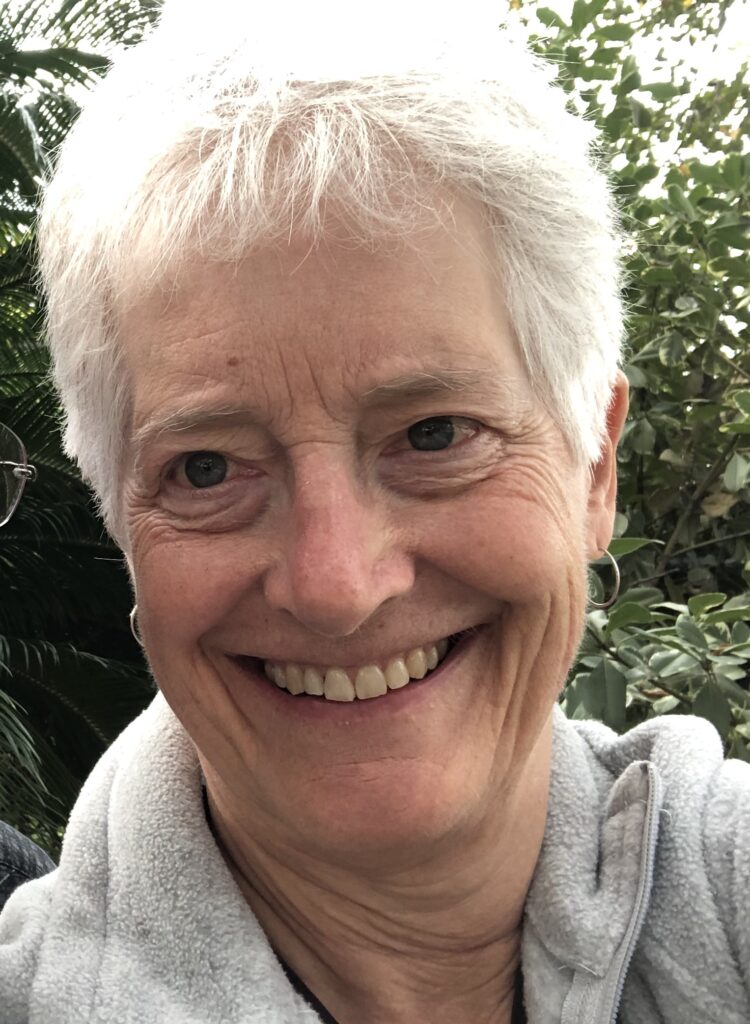
by Gabrielle Heenan
On April 2nd, 2024, the Department of Religious Studies at UT Austin welcomed Dr. Ann Taves to the jointly-held Religion in the Americas and Religion in Society Spring Area Colloquium. Dr. Taves is a Distinguished Professor (Emerita) of Religious Studies at the University of California at Santa Barbara, and her research interrogates non-ordinary experiences that scholars typically characterize as religious, mystical, anomalous, and/or pathological in hopes of better understanding the range of these experiences and the reasoning behind why, in some cases, such experiences may lead to profound insights, and, in others, to disability and distress.
This colloquium featured a pre-circulated chapter by Dr. Taves that will be published in the forthcoming Oxford Handbook of Psychedelic, Spiritual, Religious, and Mystical Experiences, edited by Michiel van Elk and David Yaden. The chapter, titled “Floating Signifiers and the Scientific Study of Experiences,” highlights how terms like ‘religious,’ ‘spiritual,’ and ‘mystical’ function as appraisals, or ‘floating signifiers’ that do not have a stable denotation. Therefore, the chapter encourages researchers to recast religious, spiritual, and mystical experiences in order to distinguish the phenomenological qualities from its appraisal.
In this project, Dr. Taves posits that in order to better understand not only the non-ordinary experience at hand, but also how it was interpreted by the individual experiencing it, researchers invested in the scientific study of religious/spiritual/mystical experiences can turn to the study of psychedelic experiences. Such work can allow scholars to explore the interactions between phenomenological features of the experience, mindset, and setting, and to consider how these elements come together to generate experiences that would be classified as non-ordinary.
This colloquium was led by PhD candidate Sarah Frankie Summers and brought together graduate students working on projects across various topics in the fields of Religion in the Americas and Religion and Society for discussion of the chapter. The event opened with an enlightening conversation between Summers and Dr. Taves, which was followed by a Q&A section that allowed the audience to ask a number of inquiries that ranged from general, content-based questions to more specific probes about methodological challenges. In particular, the audience was interested in hearing Dr. Taves speak more about the methods used to tease apart these non-ordinary experiences. Through drawing on her suggestions made in this chapter, as well as her extensive theorizing laid out in previous publications, Dr. Taves helpfully pointed to how surveys and micro-phenomenology interviews can serve as a more precise means to uncovering how an experience happened, rather than focusing solely on what happened.
The Religious Studies department hosted multiple area-specific colloquia during the 2024 spring semester. These meetings were intimate gatherings where scholars were invited to visit and present a working project within a relevant field of study with graduate students and department faculty. The spring colloquia, hosted by each specific area of concentration, gives space for graduate students to engage with contemporary, relevant, and innovative research in their fields, and offer a close-knit but enriching space for these students to exchange feedback and ideas with other scholars and faculty. The conversation with Dr. Taves was well-attended and engendered fruitful discussions for all those who were present. The department is deeply appreciative to Dr. Taves for her visit and willingness to share and think with us.
About the Speaker:
Dr. Ann Taves is a Distinguished Professor (Emerita) of Religious Studies at the University of California at Santa Barbara. For over three decades, Taves has pioneered the study of unusual experiences, and has published an array of notable works like Fits, Trances, and Visions (Princeton, 1999), Religious Experience Reconsidered: A Building Block Approach to the Study of Religion and Other Special Things (Princeton, 2009), Revelatory Events (Princeton, 2016), as well as numerous articles.
About the Author:
Gabrielle Heenan is a PhD student in the Religion of the Americas. Her work specializes in religion and secularism in the United States, as well as looks at how secularism interacts with ideas of race, gender and sexuality. She is currently working on a project about the historical development of secularism in New Orleans.
